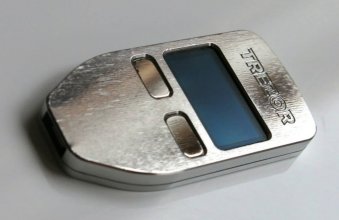Yubikey Bitcoin wallet

Hardware wallet manufacturer Trezor has confirmed it will deliver its first batch of wallets next month, following a successful crowdfunding campaign that began in June.
Trezor had previously promised to deliver its first orders in October, but .
Instead, the pair decided to solicit funds from the bitcoin community directly, via that “most of the initial costs” had been covered by “hundreds of enthusiasts”. Rusnak wouldn’t give an exact figure on how much has been raised, nor how many people have contributed; adding only that the amount was “enough to cover mass production costs”.
Pricing controversy
Trezor offered bitcoin enthusiasts two ways of supporting its crowdfunding campaign. Supporters could either pay 1 BTC for a standard Trezor unit with a plastic casing, or pay triple the price for the aluminium-clad metallic option.
As bitcoin’s value has soared in the past two months, users have begun to question the wisdom of Trezor pricing its pre-orders in the cryptocurrency.
According to Mt Gox, a Trezor pre-order was worth, on average, 0 (US dollars) during the device’s crowdfunding campaign period. However, bitcoin’s value began to climb steeply in mid-October.
 As a result, some redditors have expressed their discontent with Trezor’s price. One user, for example, :
As a result, some redditors have expressed their discontent with Trezor’s price. One user, for example, :
“The decision to have a fixed price was a mistake because of the huge price changes in the value of a bitcoin.”
In response, Rusnak dismissed these comments as “misguided”. When asked if he regretted setting pre-order prices at a flat bitcoin-denominated value, he replied: “No.”
Trezor previously stated that it would price its pre-orders in bitcoin to support the bitcoin economy. He added: “You don’t see people complaining on Kickstarter that they want their money back with interest.”
Rusnak also said that his firm’s decision to end the crowdfunding campaign came in response to complaints about Trezor’s price. He added:
“We decided to stop [the crowdfunding campaign] in order to stop meaningless discussions about the Trezor pricing.”
Rusnak added that “almost all” the currency his firm collected from crowdfunding was “immediately” changed to fiat currency to pay for production costs.






